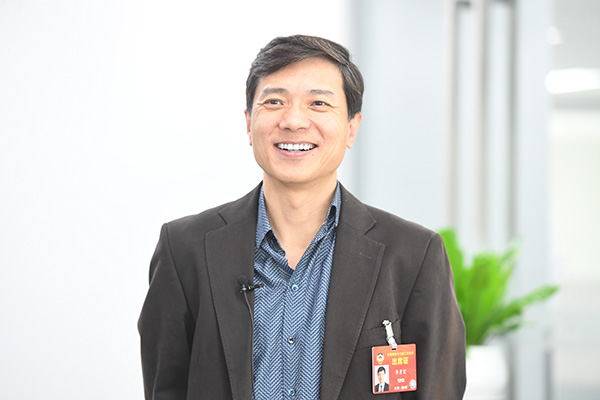Li Yanhong Suggested Strengthening Research On Artificial Intelligence Ethics And Trying To Avoid Developing In Bad Directions
Li Yanhong Suggested Strengthening Research On Artificial Intelligence Ethics And Trying To Avoid Developing In Bad Directions
On March 2, a reporter from The Paper learned that Li Yanhong, a member of the National Committee of the Chinese People
Li Yanhong
On March 2, a reporter from The Paper learned that Li Yanhong, a member of the National Committee of the Chinese People's Political Consultative Conference and Chairman of Baidu, participated in this year's National "Two Sessions" and brought three proposals.
The first proposal "Proposal on strengthening research on artificial intelligence ethics and building the cornerstone of the development of intelligent society."
Li Yanhong said that artificial intelligence technology has developed very rapidly in the past few years. Not only is it constantly innovating theories, but it is also becoming stronger and stronger in computing power, with more and more data, and more and more things to do. So I think we need to consider from a society, from the perspective of a government and the public, what should be done, what should not be done, what is good, what is bad, what is bad, We will make some regulations and predictions early, and try to avoid artificial intelligence developing in a bad direction. For example, how to avoid a large number of unemployment, how to ensure the security of data, how to avoid being attacked by hackers, etc., I think these issues need to be considered from a global scope as soon as possible.
Li Yanhong suggested that the government authorities should take the lead in organizing interdisciplinary industry experts, representatives of artificial intelligence enterprises, industry users and the public and other relevant parties to carry out research and top-level design of artificial intelligence ethics, promote the improvement of people's livelihood and welfare, and promote the healthy development of the industry. Grasp the initiative in the new round of technological revolution. Strengthen the responsibility of leading enterprises, accelerate the implementation of the ethical principles of artificial intelligence, and let the information and services provided by artificial intelligence help people grow and develop.
The second is a proposal to build intelligent transportation solutions to make people's travel smoother.
In this proposal, Robin Li suggested that the country further strengthen guidance, establish a data sharing and use mechanism, and encourage local governments to explore and build intelligent transportation solutions. First, speed up the formulation of vehicle-road collaborative standards. Second, promote the intelligent transformation of transportation infrastructure, encourage local governments to increase the layout of vehicle-road collaborative roadside equipment, and develop vehicle-road collaborative management platforms. Third, carry out smart transportation application demonstration, select cities with conditions, take the lead in deploying applications such as smart traffic lights and smart parking, and gradually promote them to the whole country.
Li Yanhong said that many people are very concerned about the traffic congestion problem in big cities like Beijing. Intelligent transportation is a big opportunity in the future, but this opportunity cannot be solved by one or two independent companies. It is more important to require government departments to work hard to coordinate vehicle and roads and how to cooperate in infrastructure. In this way, not only fully automatic driverless cars can run on the road, but those with assisted driving functions can run on it. Even if a car without autonomous driving function can increase traffic efficiency by adjusting the time of traffic lights, etc., so this also requires cooperation at the infrastructure level or government level.
The third is a proposal to improve the electronic medical record management system, promote the exploration of smart medical applications, and help implement the "Healthy China" strategy.
Member Li Yanhong suggested that the National Health Commission will take the lead in planning in the management, scientific research and use of electronic medical record data, accelerate the exploration of related intelligent applications, and help form a high-quality and efficient medical and health service system. First, continue to implement and improve the standards for filling in electronic medical records. The second is to improve the technical standards and legal guarantees for data application. The third is to accelerate the scientific research and application of electronic medical records. After the relevant technologies are mature, they will be promoted to primary medical institutions.
Li Yanhong said that if artificial intelligence technology wants to play a role, a very critical point is to have big data to let it learn. In the medical field, in fact, there are a lot of patients in our country every day, and in fact, a lot of data have been accumulated, but there are two problems: the first is that the data is not standardized enough, and the second is that the data in the medical record is not well shared. I hope that the country will formulate relevant standards to make these data uniform, standardized and open in an orderly manner. While protecting patients' privacy, how can these data be exchanged and allow researchers to better utilize these data? Make medical progress that cannot be done in the past.


